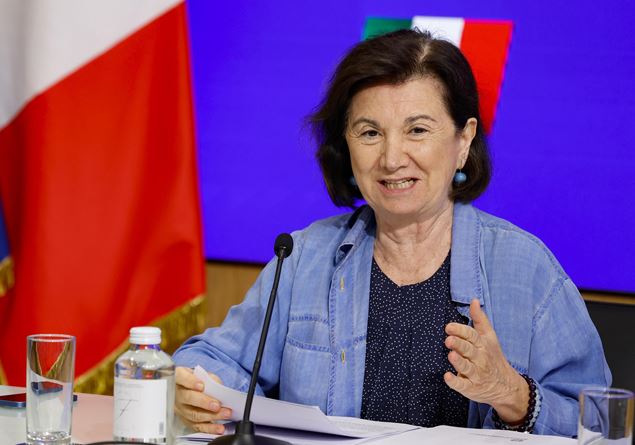The entrance to the Auschwitz concentration camp.
And ugenia Roccella is no stranger to provocations. But his outburst at the conference promoted by the Union of Italian Jewish Communities is unacceptable, because it distorts history by exploiting the most terrible tragedy of the twentieth century: the Holocaust. The Minister of Family Affairs went so far as to say that the trips promoted by schools and municipalities to Auschwitz, the Polish location where the largest Nazi extermination camp system was located, are “trips organized to say that anti-Semitism is only fascist”. Even Senator Liliana Segre, an Auschwitz survivor, said she found it hard to believe that a minister of the Republic could make similar statements.
The sarcastic contempt for these educational trips, downgraded to “trips”, already demands an apology, given that it is an educational experience that not even the right has ever dared to question (Gianni Alemanno also promoted them, when he was mayor). But going so far as to attenuate the responsibilities of the fascists in supporting the deportations decided by the Nazi troops is a real scoundrel. The racial laws were signed by Benito Mussolini and introduced in Italy as early as 1938, before Germany asked for collaboration. They were not a concession to the Germans, but an autonomous choice of the regime: an ideological adherence to the racist vision of the new fascist, “pure” and “Aryanized” man. Italian anti-Semitism was born and grew within fascism, fueled by a cultural apparatus that ranged from the Race Manifesto to the press campaigns of The Defense of the Race, directed by Telesio Interlandi. Thousands of Jews were expelled from schools, universities and public administrations. Anti-Semitism was a pillar of regime consensus and propaganda. And when, after 8 September 1943, the country split, the Italian Social Republic actively collaborated with the Nazis in round-up and deportation operations. The fascist police provided lists, arrested entire families, guarded the prisoners before handing them over to the SS. Without them, the extermination machine would never have worked with the same effectiveness, starting with the roundup of the Rome ghetto on 16 October 1943. It was the Italian fascists who compiled the lists, knocked on doors at dawn, loaded women, old people and children onto trucks. Of 1,259 deportees, only 16 returned.
This is why the minister’s words are not a “gaffe”, but a wound. Because they insinuate that History is an opinion and not a fact. That we can put executioners and victims, ideologies and atrocities on the same level. In an era in which revisionism and historical amnesia run faster than memory, we need ministers capable of uniting, not dividing. Those who accompany the kids in front of that gate with the writing “Arbeit macht frei” would be useful, reminding them that freedom is not free, and that hatred, if not monitored, always returns. We wish the minister an educational trip together with a group of students to Auschwitz, to reflect, in the silence of those memories that take your breath away, on his words. He will discover that these are not trips.


